This Is Why Your Cat May Thin at the Back End (The Truth)
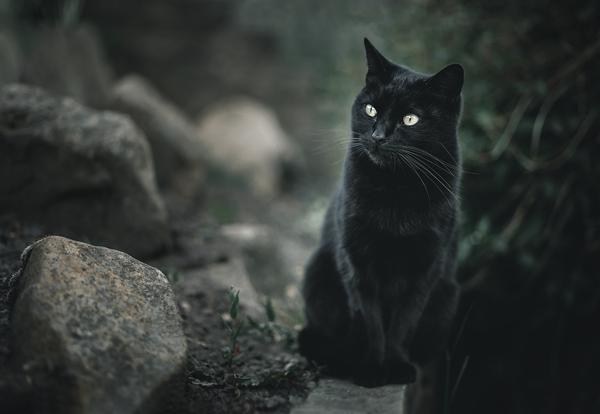
Just imagine:
You're sitting on the couch, stroking your cat's soft fur, when suddenly you notice something unsettling - their back end feels scrawny and thin. Panic sets in. Is it a sign of something serious? 😥
Will your furry friend be okay?
Take a deep breath and let's dig into this together.
What Could Be Causing Your Cat to Be Thin at the Back End?
A potential cause for a thin back end in cats could be a dietary issue. Consider changing their diet or eliminating possible allergens. If you notice visible bones like ribs, hips, or vertebrae, it may indicate underweight. Consult a vet for further evaluation.
If your cat looks skinny at the back, investigate further. Something might be wrong.
Maybe it's a dietary problem causing weight loss in cats.
Try changing their diet or removing potential allergens from their food. Consider a novel protein diet to fix the issue.
Take note if you see visible bones like ribs, hips, and vertebrae around your cat's back area.
It means they are underweight.
Pay close attention to these areas!
Don't ignore your concerns; talk to your vet if something seems off.
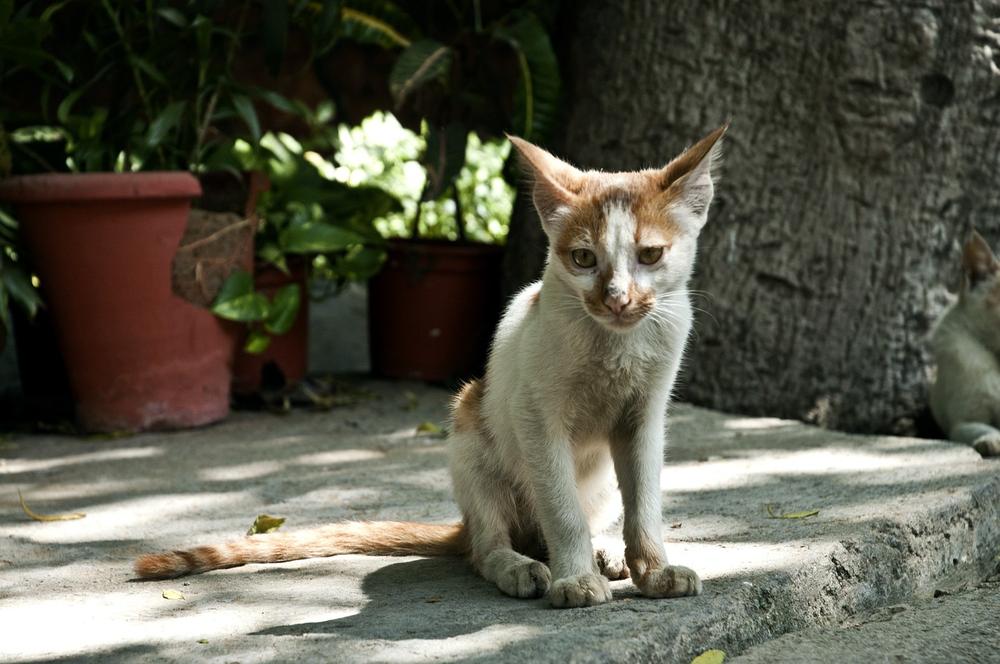
Vets use specific indicators, like Body Condition Score (BCS), to assess weight and body condition.
They check for visible ribs, minimal fat, a defined waist, a tucked stomach, and easy-to-feel vertebrae.
It can be tricky to determine if your cat is too skinny, especially with long fur or a sagging belly.
If you notice any behavior or physical changes, take them seriously.
Contact your vet as soon as possible.
But what if it's not just a dietary problem?
There could be underlying medical conditions causing your cat's thinness at the back end!
Let's explore some potential reasons and how to address them:
Common Medical Conditions That Cause Weight Loss in Cats
Cats losing weight can be due to different health problems.
Diabetes mellitus, for example, is one condition that can make your feline buddy shed pounds.
So if you see your cat dropping weight, keep an eye on their symptoms and talk to a vet.
Watch out for changes in appetite, thirst, puking, pooping, or specifically losing weight in the hindquarters.
When you go to the vet, tell them about any diet changes, meds, or other symptoms or stuff happening at home.
Other medical conditions like hyperthyroidism, tummy issues, viral diseases, kidney disease, liver disease, cancer, FIV, or organ failure can also lead to weight loss in cats.
To check if your cat is too thin, regularly monitor their weight and look for changes in the backside, bones or spine visibility, and muscle loss.
Routine vet care can help uncover and address any underlying health problems causing weight loss in your furry pal. 😺
And it gets worse...
There's another common culprit behind weight loss and thinning at the back end in cats that you need to be aware of.
These pesky invaders can wreak havoc on your feline friend's health if left untreated.
Curious about what it could be?
Keep reading to find out how to protect your cat from this threat...
Parasites and Weight Loss in Cats
Intestinal worms like tapeworms can really mess up your cat's stomach.
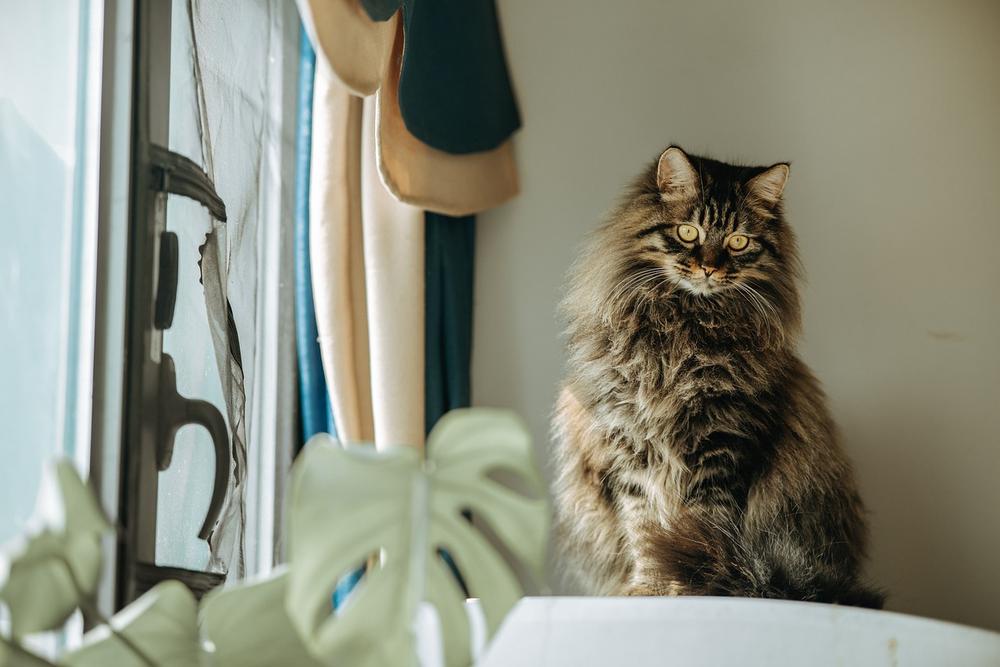
They not only make them lose weight and have a skinny rear end, but they can also cause serious tummy problems if you don't treat them.
That's why it's super important to regularly get your cat dewormed for their in essence health.
But there are some other things to know about parasites and weight loss in cats:
- Prevention is the key: Make sure to regularly control fleas to keep your cat from getting infested with worms.
- Watch out for signs: Along with weight loss, keep an eye out for symptoms like diarrhea, vomiting, and a dull coat that might indicate a worm infection.
- Timing is everything: If you think your cat has worms, getting them tested and starting treatment right away is crucial.
- Follow-up matters: After deworming, pay attention to your cat's weight and general condition to make sure the treatment worked.
- Talk to your vet: When it comes to preventing and treating parasites, your vet is the best person to turn to for advice. Don't hesitate to reach out if you need help.
Your cat's well-being is in your hands, so stay on top of things when it comes to parasites and weight loss.
Digestive Disorders and Weight Loss in Cats
If your cat is losing weight, it could be due to inflammatory bowel disease (IBD) or other gastrointestinal diseases.
Symptoms like vomiting, diarrhea, reduced appetite, and weight loss at the back end are common in cats with these conditions.
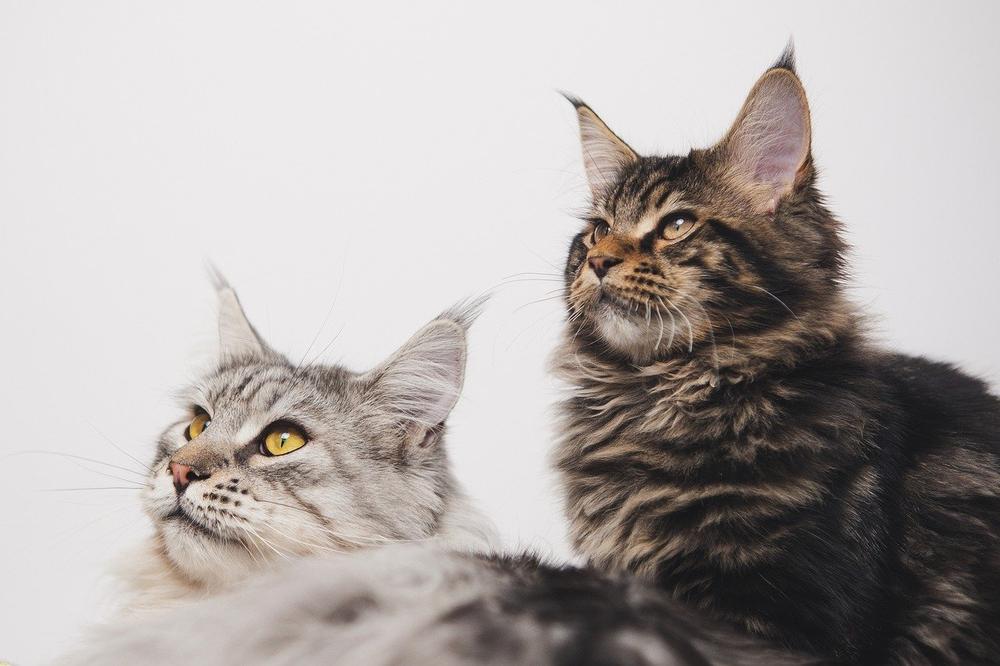
To get a proper diagnosis and treatment, you should consult with your vet. They may recommend diagnostic tests and dietary interventions, such as prescription hypoallergenic diets.
These measures can help address the underlying digestive issues and support your cat's weight gain.
So, if you notice these signs in your feline friend, don't hesitate to seek professional advice for their well-being.
Feeding Issues and Weight Loss in Cats
To address feeding issues and weight loss in cats, here are 12 tips to consider:
- Schedule regular dental cleanings and exams.
- Observe eating habits and monitor body condition score.
- Check your cat's weight regularly.
- Ensure sufficient calorie intake for your cat.
- Make dietary considerations for underweight cats.
- Incorporate a high-protein diet into your cat's meals.
- Switch up the brand or type of food to stimulate appetite.
- Provide higher-calorie or therapeutic foods if necessary.
- Rule out any underlying medical conditions.
- Address stressors that may be affecting your cat's appetite.
- Treat dental disease promptly.
- Never let your cat go prolonged periods without access to food.
Refusing to eat can have serious consequences, like hepatic lipidosis.
Seek immediate veterinary attention if your cat shows signs of fatty liver syndrome.
And finally, if you find that your cat is smaller than average and you're worried about their size and weight, I have just the guide for you.
In my blog post, Why Is My Cat So Small, I delve into the reasons why some cats may be smaller and help you determine if a visit to the vet is necessary.
Don't let any concerns linger; click on the link to find out more.
Stress and Weight Loss in Cats
Here's how to keep your cat from losing weight due to stress.
- Make a cozy spot just for them.
- Keep things calm and quiet around them.
- Stick to a regular schedule for meals and playtime.
- Engage their minds with toys and scratching posts.
- Use sprays or diffusers that help them relax.
- Give them lots of love and attention.
- Check with a vet to rule out any health issues.
- Watch their eating habits closely.
- Consider giving them smaller, more frequent meals.
- Offer a variety of healthy cat food options.
Also, watch out for signs of anxiety or depression in your feline friend and seek professional guidance if needed.
A happy cat is a healthy cat.
And if anything seems off, don't hesitate to contact your vet right away.
Listen closely, because this is the secret sauce: Further down the blog post, I will detail other possible causes of weight loss in cats. So keep reading to ensure you have a comprehensive understanding of your feline friend's well-being.
Age-related weight loss in cats is often caused by a decrease in muscle mass known as sarcopenia. Regular exercise can help slow down this process, benefiting both their muscles and weight management. However, significant weight loss in their hindquarters may indicate underlying health issues.
Let me fill you in on why your cat might be thin at the back end and what age-related weight loss in cats is all about.
To start, it's important for you to know that as cats get older, their muscle mass can decrease.
This condition, called sarcopenia, is quite common among senior felines.
When this happens, weight loss may occur.
But don't worry, it doesn't mean your cat has to give up on staying fit.
In fact, incorporating a regular exercise routine tailored to their abilities can help slow down this process.
So go ahead and ensure your cat gets some playtime every day. It won't just benefit their muscles, but also their weight management.
Now let's get back to the main point: weight loss in older cats.
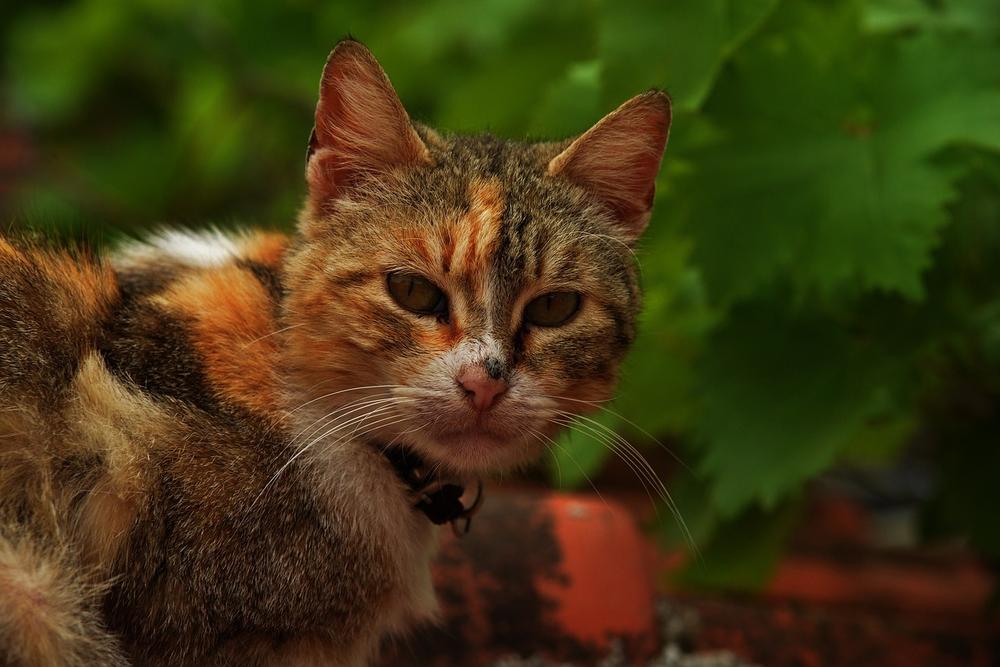
While shedding a few pounds as they age can be normal, it could also be a sign of underlying health issues.
That's why you need to keep an eye out for significant muscle loss or weight loss in their hindquarters, as it may indicate illness.
Something else to think about is that aging cats might experience a decline in digestive function.
To support their digestive system, it's beneficial to provide them with easily digestible food that's packed with antioxidants, omega-3 and -6 fatty acids, and prebiotics.
By giving them these nutrients, you can assist in maintaining their overall health and well-being.
And here's the eye-opening truth about weight loss in cats...
It could be due to a variety of factors, including diet, anxiety, and diseases.
But what if I told you there's one sneaky culprit that often goes unnoticed?
Keep reading to uncover the surprising role of parasites in your cat's health...
Other Possible Causes of Weight Loss in Cats
Here are eleven reasons why your cat might be losing weight:
- The feline leukemia virus (FeLV) can cause weight loss.
- Cats can experience weight loss due to feelings of anxiety and stress.
- A poor diet or lack of proper nutrition can lead to weight loss.
- Intestinal parasites may be causing your cat to lose weight.
- Dental issues can make eating painful for cats, resulting in weight loss.
- An overactive thyroid (hyperthyroidism) can cause weight loss in cats.
- Diabetes is another potential cause of weight loss in cats.
- Kidney disease can lead to weight loss in felines.
- Liver disease is a possible reason for weight loss in cats.
- Inflammatory bowel disease can result in weight loss in cats.
- Weight loss can also be a sign of cancer in cats.
To address your cat's weight loss, you must regularly monitor their weight and assess the condition of their muscles through gentle touching.
Even small changes in weight can have significant implications, so it's essential not to overlook them.
If you observe weight loss primarily in your cat's hindquarters, it could be attributed to various factors such as aging, loss of appetite, specific illnesses, or mental health issues like depression.
Keep in mind that some cat breeds naturally have slender bodies but still require maintaining a healthy condition.
If you encounter a malnourished stray cat, don't hesitate to seek advice from your local shelter or veterinarian for assistance with its recovery.
Regular vaccinations and routine testing play a vital role in preventing FeLV and other potential health problems in cats.
Possible Causes of Weight Loss in Cats
- An underweight cat will show prominent bones around the back end.
- Veterinarians use a Body Condition Score to evaluate a cat's weight.
- Seek veterinary consultation for weight loss accompanied by other symptoms.
- Weight loss in cats can indicate various diseases and medical conditions.
- Regularly monitor your cat's weight and assess for changes.
- Thinning at the back end can indicate intestinal parasites or diabetes.
- Gastrointestinal diseases can cause weight loss in cats.
- Feeding issues and weight loss can be monitored and managed through dietary considerations.
- Stress and anxiety can cause a loss of appetite in cats.
- Weight loss in older cats may be a normal part of aging but should be monitored.
- Weight loss can be caused by diet, anxiety, parasites, or diseases.
- Regularly assess a cat's condition and weight to ensure health.
- Seek advice from professionals if you come across a malnourished stray cat.
And that wraps up today's article.
Before you leave, can I ask you something? Did my blog post help you out? If it did, it would mean a lot to me if you could share it with your loved ones. You can easily click on any of the social media sharing icons to instantly spread the word. Thank you so much!
Talk soon,
-Sarah Davis